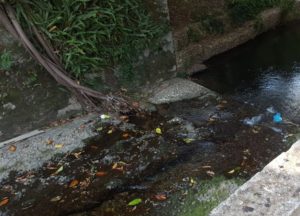YOUR HUMAN RIGHT TO DRINKING WATER: A BRIEF CONSTITUTIONAL PERSPECTIVE
Written by Advocate Muhammad Abduroaf (LL.B) (LL.M)
10 March 2017
In order for most living organisms to thrive, fresh drinking water is essential. For those living in Cape Town, Western Cape, a day without water to many, is a day unexperienced. However, an extremely low percentage of the earth’s water is freshwater, and of it, an even smaller percentage of that is available to humans. Therefore, every drop of potable and usable water must be used in a sustainable manner. For the past few decades, South Africa’s available freshwater resources have been fully utilised and placed under tremendous stress. This resulted in the threat of drought and water shortages remaining constant.
South Africa is an arid country with a small percentage of its rainfall available as surface water. It further has one of the lowest conversion ratios in the world. Each time we lose a water resource due to pollution or to poor conservation, we are driven closer to ‘water resource extinction’. It is therefore critically concerning that many of the Western Cape’s rivers are heavily polluted.
Section 24 of our country’s constitution states that “everyone has the right to an environment that is not harmful to their health or well-being.” The same section further states that “the environment is to be protected, for the benefit of present and future generations, through reasonable legislative and other measures that prevent pollution and ecological degradation; promote conservation; and secure ecologically sustainable development and use of natural resources while promoting justifiable economic and social development. Furthermore, section 27 of our Constitution states that “everyone has the right to have access to sufficient water.”
Our water resources forms part of the environment and the state clearly has an obligation to ensure its sustained existence and protection. Laws, policies, and practices have to be in place to ensure that there would always be sufficient drinkable and usable water for present and future generations. If the public abuse and misuse water, the law should step in, remedy and prevent the wrongs from recurring. In this manner, everyone’s right to sufficient water for drinking, cleaning and so on, would be given meaning to.

Having looked at our Constitution which is supreme law; we ask ourselves where does this leave us with the current water crises in the Western Cape? Is the law on paper of any use, seeing that our dams are emptying each day? Analysing the crises constitutionally, the state, in this case, the City of Cape Town, and other surrounding municipalities, as well as the Western Cape Government, have an obligation to ensure that there are adequate laws in place to protect our valuable water resources, and put structures, policies and plans in place to ensure that there is enough water for everyone in the future. This could mean the establishment of more dams, utilising more water catchment areas, or the establishment of desalination plants and stringent penalties for water abusers etc.
Moving forward, the state has to learn from the current water crises, but should not wait until when the rains fill up the current dams. What is expected and prescribed to the state in terms of the Constitution is to ensure that there are no more water crises in the future, and that as long as everyone uses water responsibly, everyone would receive their fair daily share thereof. In the same breath, it must be stated that there is also an obligation on individuals and industry to conserve water, and should they not do so, the appropriate measures should be implemented. When the need arises, the public should harvest rainwater from roofs, use grey water, make use of onsite storm water etc.
Therefore, in conclusion, we all have the right to drinking water, and most of it is to be supplied by the state. But there is also an obligation on both the state and the public, to ensure that water is not wasted, and be used in a sustainable manner. Let us together work with government in protecting one of our most valuable resources, not only for us, but for future generations as well.
Advocate Muhammad Abduroaf practices as an advocate of the High Court of South Africa. He is based in the Western Cape holding a Bachelor of Laws Degree (LL.B) and a Master of Laws (LL.M) Degree both from the University of the Western Cape, Cape Town, South Africa. His Masters Degree was in Constitutional Litigation and the courses that he completed were International Environmental Law and Constitutional Criminal Justice. His mini—thesis was entitled: A right to protected rivers: An analysis of the fulfillment of the State’s Constitutional obligation to take reasonable legislative and other measures that promote the conservation and secure the sustainable use of rivers in South Africa.